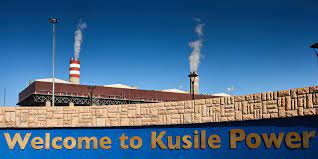Digging into the ABB Bribery Details in South Africa (Part II of III)

The details of bribery schemes are invaluable for learning how criminals think – bribery always requires some scheme to transfer money from the organization to fund bribery payments to a government official(s). Compliance professionals like to comb through the wreckage and turn the inquiry into a self-assessment. The logical questions follow:
- If someone in my organization attempted to implement such a scheme, would our company’s controls detect the misconduct?
- If not, where would the weakness exist?
- Would my company’s due diligence and/or transaction screening process uncover the red flags surrounding the use of the third party at issue?
All of these inquiries are important to apply to analyze your own company’s weaknesses and provide important lessons learned.
The ABB case in South Africa provides a number of opportunities to assess ABB’s controls and then apply these issues to compliance programs in general.
Let’s start with the basic facts. Between 2014 to 2017, ABB paid bribes to a single, high-ranking Eskom official to obtain business advantages in the award of multiple contracts. To this end, ABB engaged multiple subcontractors who were linked to the South African government official and made payments to those subcontractors that were, part, bribery payments intended for the government official. ABB engaged these subcontractors despite their poor qualifications and lack of experience. In exchange, ABB secured improper confidential and internal Eskom information needed to secure valuable contracts.

As part of the scheme, ABB conducted sham negotiations to obtain contracts at inflated prices that ABB had pre-arranged with the South African government official, with the condition that ABB employ a particular subcontractor linked to the government official. ABB falsely recorded payments to the subcontractors as legitimate business expenses despite the fact that a portion of the payments were, in fact, bribes.
The Kusile Project
In 2013, ABB learned that Eskom planned to hire new contractors for control and instrumentation work (“C&I”) on a large, coal-fired power plant at Kusile in Witbank, South Africa. ABB’s ability to secure a contract depended on its engagement of local South African subcontractors.
The high-ranking, Eskom executive introduced a subcontractor executive (“subcontractor executive 1”) to ABB as “a friend” and someone who would be “interesting” for ABB to engage. An ABB manager sought to onboard subcontractor 1, despite the fact that subcontractor 1 did not have the requisite qualifications or experience. Subcontractor 1 submitted a proposal for the Kusile project that increased the overall cost by $9 million.
ABB submitted its bid for the C&I project and learned that its bid was $45 million higher than its nearest competitor. The Eskom official and subcontractor 1 secured confidential information concerning the timing and process for evaluating the bids. During negotiations over the contract, subcontractor 1 provided confidential information concerning the pricing, terms and outstanding issues to ABB. Subsequently, ABB was selected as the winner of the contract. The next day, several Eskom officials, including the high-ranking official who interacted with ABB, were suspended from Eskom. Notwithstanding this action, Eskom agreed to adhere to the contract and the engagement of the subcontractor (through whom bribes would be paid to the Eskom official).

Under Eskom’s contract with subcontractor 1, Eskom agreed to pay a 10 percent advance fee, in the amount of $798,000, a portion of which was intended as bribes for the Eskom official. ABB experienced difficulties in the execution of the C&I contract stemming from subcontractor 1’s poor performance and lack of experience.
The Use of Variation Orders
In 2015, the high-ranking South African official was reinstated at Eskom. ABB established a relationship with an additional subcontractor, number 2, to assist in the Kusile Project. Subcontractor 2 failed various portions of the ABB due diligence process, including subcontractor 2’s financial stability and qualifications.
An ABB manager responsible for the Kusile Project sought to approve and onboard subcontractor 2 as quickly as possible, which required a specific waiver of due diligence requirements to be approved by ABB procurement and compliance officials. Despite significant concerns, ABB approved the waiver and sought to remediate obvious technical deficiencies by arranging for subcontractor 2 to work through other qualified and technically capable subcontractors on the project.
To further the bribery scheme, ABB and the Eskom official agreed to inflate the costs of variation orders. Under this plan, the Eskom official would propose a variation order; an ABB manager and the Eskom official would agree on a set price; the Eskom official would require ABB to use subcontractor 2 for the project; ABB and Eskom engaged in “sham” negotiations but ultimately agreed on the previously-agreed on price; a portion of the payments made to subcontractor 2 for the variation order funded bribes to the Eskom official.
Interestingly, a close relative of the Eskom official was appointed to subcontractor 2’s board of directors and held an ownership interest through a trust that was created by subcontractor 2 for the Kusile project.
ABB and the Eskom official executed four variation orders using this bribery mechanism. The total of these variation orders was more than $57 million, a portion of which was paid to the Eskom official as bribes.















